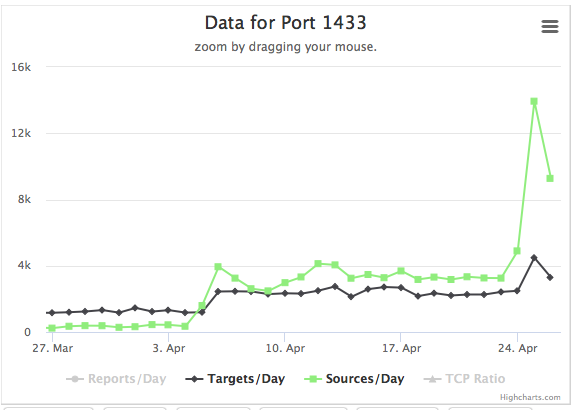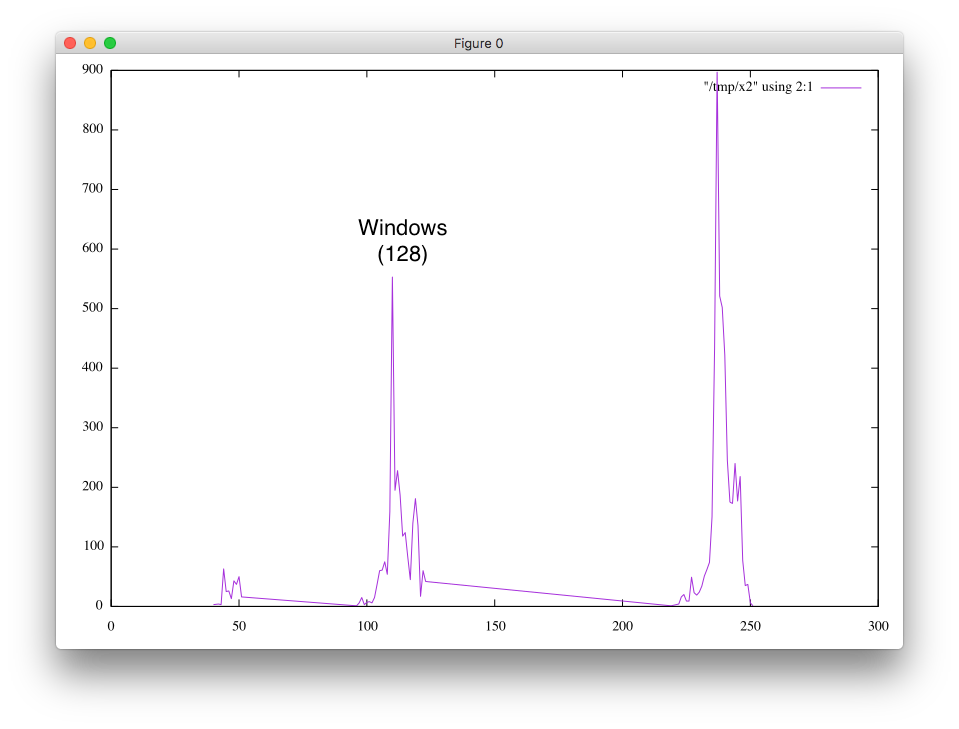If there are some unexploited MSSQL Servers With Weak Passwords Left: They got you now (again)
Setting up a Microsoft SQL server with a stupid simple password like "sa" for the "sa" user is hard. First of all, Microsoft implemented a default password policy that you need to disable. And then, when you finally Googled your way through how to disable it and turned it off with the next password reset, then it will take only minutes for your brand new shiny SQL Server to get compromised. Today, we received a number of reports of a sudden increase in these scans against port 1433 . As far as I can tell from honeypot data, the attacks are nothing special or new, just more of them.
A little bit odd is the distribution in TTLs. I am still trying to see if this is just an artifact in how I collected the data. Since MSSQL typically runs on Windows, I would expect the scans to originate from Windows systems that got compromised by this bot/worm. But instead, the majority of TTLs are just short of 255. So not even the Unix "standard" 64.
---
Johannes B. Ullrich, Ph.D. , Dean of Research, SANS Technology Institute
STI|Twitter|




Comments